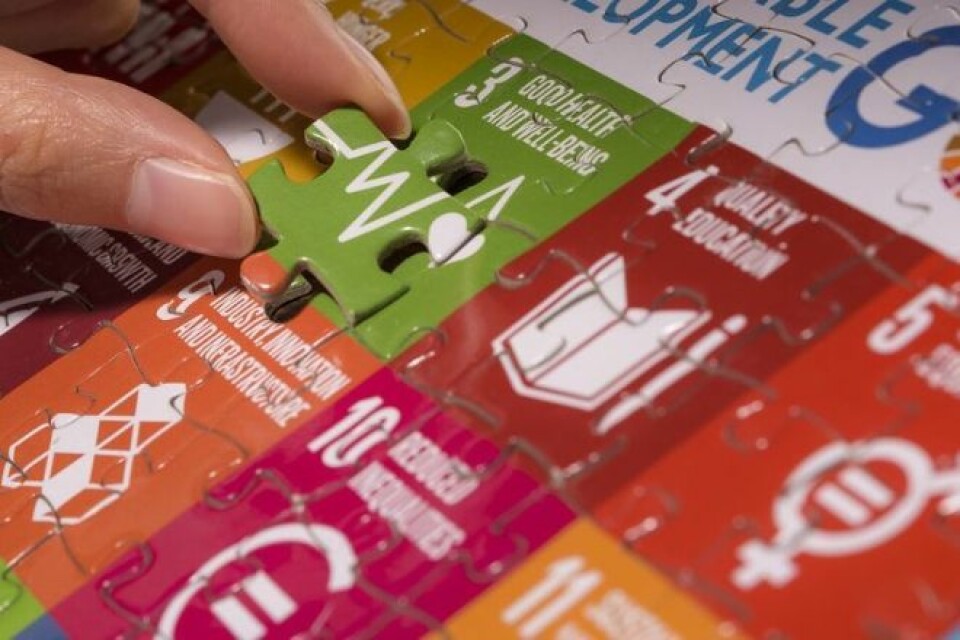
Who is responsible for sustainable development?
Should past emissions matter when allocating responsibility for sustainable development? Former GLOBUS MA student Sigrid Jerpstad has analysed the EU's view on responsibility when negotiating the global sustainable development agenda.
On 24 and 25 September 2019, heads of state and government gather at the UN headquarters in New York to review the progress on the implementation of the 2030 Agenda for Sustainable Development with its 17 Sustainable Development Goals (SDGs). While the implementation of the SDGs is closely monitored, we know less about the negotiation process. The negotiations for the SDGs were important because they provided new ideas about responsibility for international development. The previous UN Millennium Development Goals (MDGs) primarily gave developed countries (such as the EU member states) responsibility for the social and economic development in developing countries. At the negotiations for the SDGs, however, the EU maintained a forward-looking approach to responsibility, meaning that it emphasised the shared responsibility of all countries for sustainable development. The EU opposed developing countries’ claim that well-off nations have a special responsibility because of the historical inequalities they might have contributed to.
Burden sharing debates at the SDGs negotiation
The term sustainable development links environmental concerns to the social and economic aspects of development. In 2015, the SDGs replaced the 2000 Millennium Development Goals as the global goals to guide development policies for the following 15-year period. When moving from the MDGs to the SDGs, disagreements between UN member states over responsibility for sustainable development emerged, which clearly illustrates the contested nature of burden-sharing principles in international relations.
During the SDGs negotiation, the significance of historical actions was widely discussed. The exchange of views related to whether past evens should matter when allocating responsibility for a global sustainable development agenda. For the past 50 years, the debate over whose responsibility it is to finance development policies has been overshadowed by the fact that developing countries have been unjustly affected by the policies of developed countries. The MDGs – in giving developed countries responsibility for social and economic development in developing countries, reflected this perspective on international injustice. In this regard the principle of Common But Differentiated Responsibilities (CBDR) has been a widely accepted burden-sharing norm in international climate agreements. CBDR focuses on historical responsibility in the allocation of burdens, and addresses how developing countries are both unjustly affected by the current economic system and most vulnerable to environmental degradation. The principle can be understood as a developing country approach to burden-sharing. Meanwhile, at the SDGs negotiations, this principle was opposed by the EU.
The responsibility of emerging economies
The EU’s unified position and active participation in the negotiation processes for the SDGs reflects a desire to influence which norms a global sustainable development agenda should be founded on. In the negotiations, the EU maintained that the responsibilities countries have towards each other in reaching internationally agreed objectives are voluntary. However, the EU also believed there to be moral grounds for some countries to address challenges such as poverty eradication outside their own borders. This responsibility stems from the fact that least developed countries are unjustly affected by the consequences of climate change, through no fault of their own.
For the EU, a just burden-sharing agreement required countries of similar capacities to have similar responsibilities. This led the EU to emphasise the responsibility of emerging economies, such as China and India during the SDG negotiation. According to EU representatives[1], emerging economies are now approaching similar economic capacity as the EU due to their relatively strong growth in recent years. The EU perceived it as unfair that developing countries demanded financing from developed countries to ensure their continued commitment whereas emerging economies were not asked to commit in the same manner. The EU believed that emerging economies should provide their ‘fair share’ in their commitments to a global sustainable development agenda.
Forward-looking obligations
Many developing countries maintained that historical actions should be a deciding factor for allocating responsibility. Several EU member states are former colonial powers and amongst the countries with the highest rate of Green House Gas emissions historically.
The EU, however, did not perceive that it had a special responsibility for sustainable development based on the historical inequalities it might have contributed to. From the EU’s perspective, sustainable development reflects challenges of a global nature that require shared commitment of all countries. The EU, by arguing for the moral obligation of emerging economies to increase their international commitments, implicitly argued that historical responsibility should be of less significance. In this way, the EU’s approach to responsibility can be characterised as ‘forward looking’, which is in contrast to an approach where responsibility primarily stems from liability for historical actions (a ‘backward looking’ approach to responsibility).
The EU’s position at the negotiation for the SDGs reflect the view that responsibility for financing the new global goals not only belongs to developed countries. If the EU’s ideal structure of responsibility for sustainable development were to be realised, current capabilities would weigh heavier than historical contributions to injustice. With this structure, emerging economies in particular will have to commit more clearly and specifically to the global development agenda. At the same time, if the EU is to become a global leader on sustainable development as it aspires to be, it must not shy away from upholding its own financial commitments.
This blog was written as part of the research project GLOBUS Reconsidering European Contributions to Global Justice (funded by the EU’s Horizon 2020 programme) and first published at the Global Justice Blog www.globus.uio.no.







